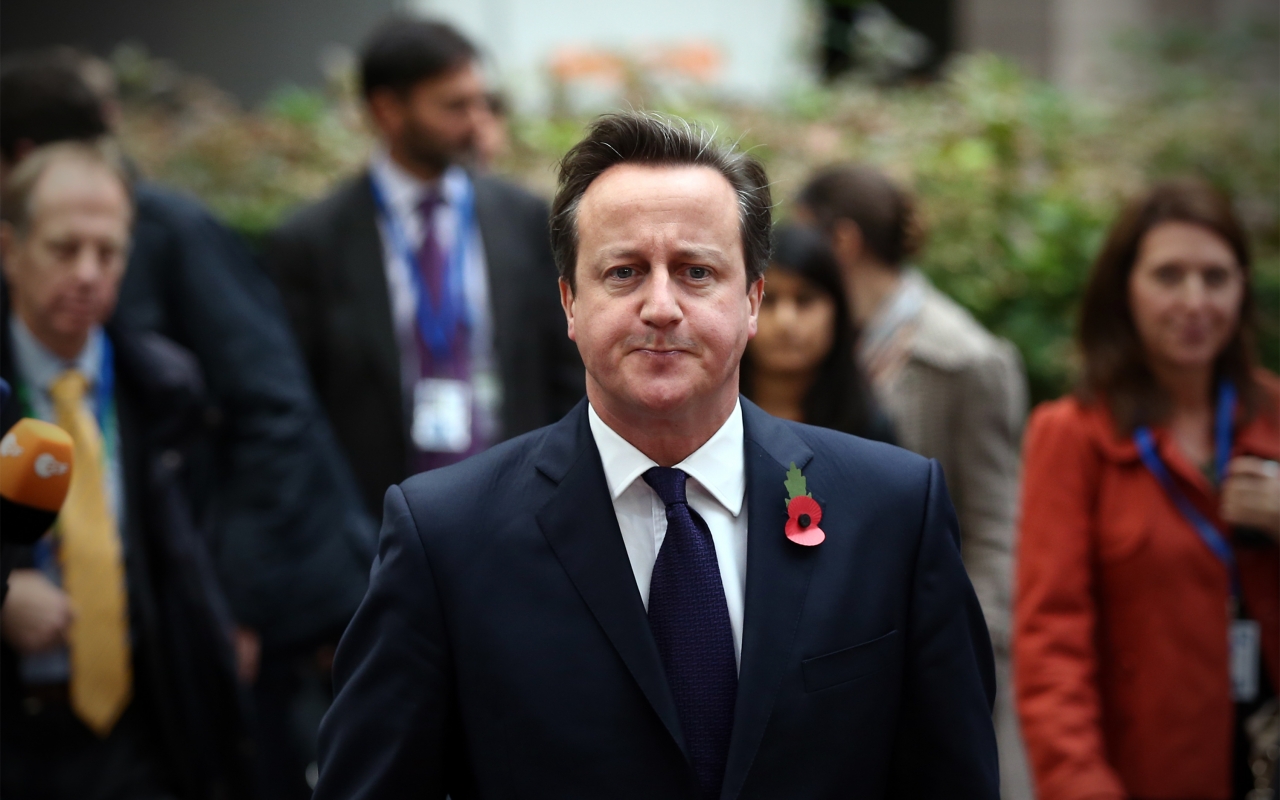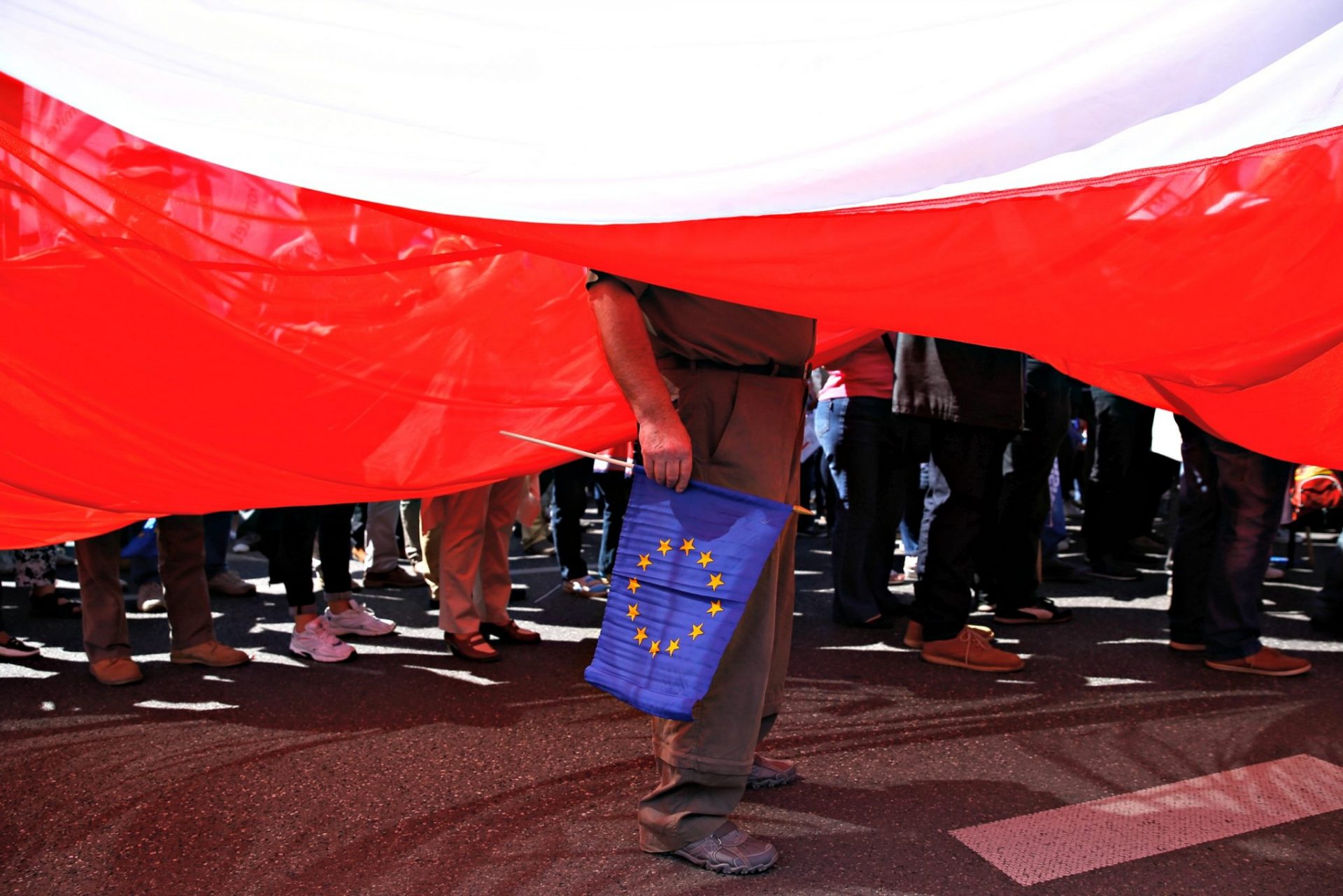
by John Bruton
Next June the people of the UK may vote to leave the European Union. At the moment, a narrow majority favours remaining in the EU, but a large group are undecided. That group could swing towards a “leave” position for a variety of reasons, including what might be temporary EU problems with refugees. However temporary the reasons might be, a decision to leave, once made, would be politically irreversible.
So it would be wise for Ireland to give thought now to how it might react to a decision by UK voters to leave the EU, and how it would play its hand in the subsequent negotiations. A number of scenarios will arise and Ireland needs to identify its red lines in each one of these.
THE NEGOTIATIONS COULD ONLY TAKE 21 MONTHS
The negotiation of a UK withdrawal from the EU will be done under Article 50 of the Lisbon Treaty. It will have to be a quick negotiation because Article 50 contains a two year time limit. In practice the negotiation of withdrawal arrangements will all have to be finished in about 21 months.
From the date that the UK Prime Minister informs the European Council of his/her decision to implement the referendum decision, the two year time limit starts to run. Assuming a June 2016 Referendum, I calculate the Withdrawal Treaty would have to been negotiated, ratified, and brought into force by July 2018.
So the negotiations themselves between the EU side and the UK side would probably have to be finished at latest by April 2018, to allow time for parliamentary ratifications. In the event that no agreement had been reached within the deadline, the EU Treaties “would cease to apply” to the UK. The UK would simply be out of the EU, without even a trade agreement.
This would be exceptionally disruptive of the UK economy, and of some, but not all, EU states’ economies. It would be particularly bad for Ireland. Our exports to the UK would be at risk, and the border would be deepened with incalculable consequences.
UNANIMITY OF ALL EU STATES NEEDED TO EXTEND THE TWO YEAR LIMIT
The two year limit could be extended, but only with the consent of all 27 members of the EU. If the negotiations had become contentious, or if the UK demands bore heavily against the interests of one or two states, one could see the required unanimous consent for an extension of negotiating time being withheld.
This risk of a single refusal to extend time for negotiation, adversely affects the dynamics of the negotiation, from a UK point of view, because the UK has more to lose from failure. It is not inconceivable that a populist government in a member state might hold a time extension for the UK hostage to obtain some other unrelated matter, such as debt relief. A European Parliament in election year could also be a source of uncertainty.
While a time extension would require unanimity, the actual negotiation of the terms of withdrawal would need a “Qualified Majority” within the European Council.
NO GUARANTEE OF PROTECTION OF IRISH INTERESTS IN WITHDRAWAL TREATY
That means that the terms of the Withdrawal Treaty would need to support of 72% of the 27 EU governments, collectively representing at least 65% of the total EU population. Ireland, on its own, could not block a Withdrawal Treaty that contained terms that were against Irish interests. Nor could Ireland guarantee it would be agreed on terms that would adequately protect Ireland’s interests. For example, Ireland could not necessarily prevent passport controls or customs posts on the border in Ireland.
While 72% of EU member state governments must agree to the Treaty terms, 100% of the 27 national parliaments must do so, and ratification could become entangled in General Elections in some states in the interim. While our fellow EU member states will undoubtedly recognise the Ireland will suffer more than any other EU state from a UK withdrawal, which does not guarantee that Irish interests will be taken into account in all cases. Quid pro Quo will apply, and that could cause difficulties on vital Irish interests on EU issues that have little direct bearing on the UK Withdrawal as such.
Given the short time involved, the UK will not have the option of pursuing a relaxed post referendum exploration of different types of external association with the EU. It will probably have to decide at the outset what form of relationship it is seeking. It will have to choose among options that do not require the EU itself to change its Treaties. The options were well described in a recent paper by Jean Claude Piris, former legal advisor to the European Council.
SCENARIO 1: UK JOINS THE EUROPEAN ECONOMIC AREA
The simplest would be to join the European Economic Area (EEA), while leaving the EU itself. The EEA allows Iceland, Liechtenstein and Norway to take part in the EU Single Market, but without being in the EU Agricultural, Fisheries, Judicial and Foreign Policies.
In the EEA, the UK would still have to contribute to the EU budget, to apply EU Single Market rules without having the say it now has in them, and to allow free movement of EU migrants to work in the UK on the same terms as locals.
Ireland’s problem with this option would be the departure of the UK from the EU Common Agricultural Policy which would raise issues of fair competitive access for Irish farm produce to the UK market. Management of Atlantic Fisheries would also become more contentious.
SCENARIO 2: THE SWISS APPROACH
Less simple would be for the UK to seek to make tailor made agreements with the EU, like Switzerland has. This negotiation would be a very complex process where tradeoffs would have to be sought between different sectors and national interests. The Swiss model has not worked well from an EU point of view, and one could expect EU negotiators to take an exceptionally tough line if this is what the UK seeks. The issue of access to the UK labour market for EU citizens would certainly be a demand from the EU side in such a negotiation.
In practice, if not in theory, the UK would have to implement EU law in all the areas for which it sought access to the EU market. This would be very problematic from the point of view of the financial services exports from London to Europe.
Once such a deal had been concluded, the EU side would be under pressure to tilt its own internal rules to favour financial service providers in the EU itself. If a system of mutual support and mutual supervision of financial service providers existed within the EU, and the UK was not part of that, there would then be valid grounds for objecting to UK financial service providers benefitting from a market they were not supporting on the same basis as EU providers.
This could hurt London, and Dublin could be a beneficiary. Outside the EU, the UK could do little to stop this. The European Banking Authority would have to leave London and there would be a good case for relocating it in Dublin.
SCENARIO 3: A CANADA STYLE AGREEMENT WITH THE EU
Another option would be for UK just to seek a trade agreement with the EU, like Canada has. This option is favoured by some of those who want the UK to leave the EU, so it needs to be studied.
The first thing to say about this is that it would have to be negotiated within the two year time limit applying to a Withdrawal Treaty under Article 50, and would presumably have to be part of the Withdrawal Treaty. The existing Canada Agreement took 6 years to negotiate and dealt with a much less complex relationship than that between the UK and the rest of Europe. It is very hard to see how all this could be done in the time frame. The European Parliament would actively involve itself in the details. The UK would be excluded from the European council discussions on the topic.
A Canada type agreement would not necessarily mean continuing tariff free access to the EU for all UK goods. Some tariffs remain on some Canadian goods for the time being. It is unlikely that a trade agreement like this, or even a Customs Union of the kind Turkey has with the EU, would allow the UK access to the EU financial services market and financial services are one of the UK’s biggest exports.
It is clear that under a Canada style agreement, the UK would have to comply with EU rules on any goods or services it wanted to export to Ireland or to any other EU member state. The UK would have no say in the framing of these rules, but it would still be bound by them.
Of course, the UK would be free to make its own rules for goods and services sold within the UK, but the downside of that would be that UK firms would then have to operate under two different rule books, one for the UK and another for the EU, thereby adding to their costs and damaging their competitiveness.
Once a Canada style agreement had been made, the UK would be out of the EU and would have no control over any further rules on new topics that the EU might need to make. The Canada agreement is clear that it does not restrict the EU making “new laws in areas of interest” to it. If the Canada model was followed there would be a Regulatory Cooperation Forum to cover this sort of thing. In the Canadian model, this Forum would allow:
- “exchange of information and experiences”,
- “only provide suggestions and make no rules”
- “not have decision making powers”.
In other words, the UK would be in a worse position than it is as a voting member of the EU. If, after the UK had withdrawn, the EU deepened its service market further, allowing new access rights across border for service providers within the EU, the UK would miss out on this and would have to negotiate access for its service providers on a case by case basis. The rights of the 1.8 million UK citizens now living in EU countries would also be less secure. UK citizens, living in Ireland or the continent, would enjoy only what Canadians enjoy.
WHAT WOULD HAPPEN TO EXISTING EU TRADE DEALS, AND TO EU LAWS NOW ON THE UK STATUTE BOOK?
Furthermore, the UK would have to start from scratch negotiating trade agreements with countries all over the world, to replace the trade agreements it now has with all those same countries as a member of the EU. The UK Parliament would certainly be busy as well, in that it would have to pass new UK laws to replace all the EU regulations that are now part of UK law.
The only alternative to this would be for the UK to decide to leave all the “acquis” of EU rules and regulations, which are now supposedly so objectionable, on the UK statute book, as they are, for a long time to come. One proponent of UK exit from the EU, Lord Lamont, admitted, in a debate with me recently that this is what they would have to do. Leaving the EU, only to leave EU rules on the UK statute book, seems like a lot of trouble to achieve very little!
A SECOND REFERENDUM?
There would be no second referendum on the final terms of any Withdrawal Treaty. This has been made clear by Chancellor Osborne. That has to be his position because, if there was to be such a referendum, the choice would presumably be either to leave on the basis of the terms of withdrawal Treaty, or stay in on the basis of the EU membership exactly as it is today.
If such a second referendum was formally in prospect, it is hard to see that the EU side would have any incentive at all to offer the UK any concessions at in the Withdrawal Treaty negotiations. They would be mad to do so, because all the concessions would achieve, would be to make withdrawal more attractive.
CONCLUSION
I believe that the architects of the UK’s renegotiation/referendum strategy did not adequately consider how hazardous the voyage is, on which they have so casually embarked. They may have overestimated the EU’s political capacity to devise yet another special deal for the UK. Ireland, for its part, will have to adopt a very tough, deliberate, and multifaceted negotiating strategy, as long as this avoidable uncertainty prevails.
- This article first appeared on Martenscentre



